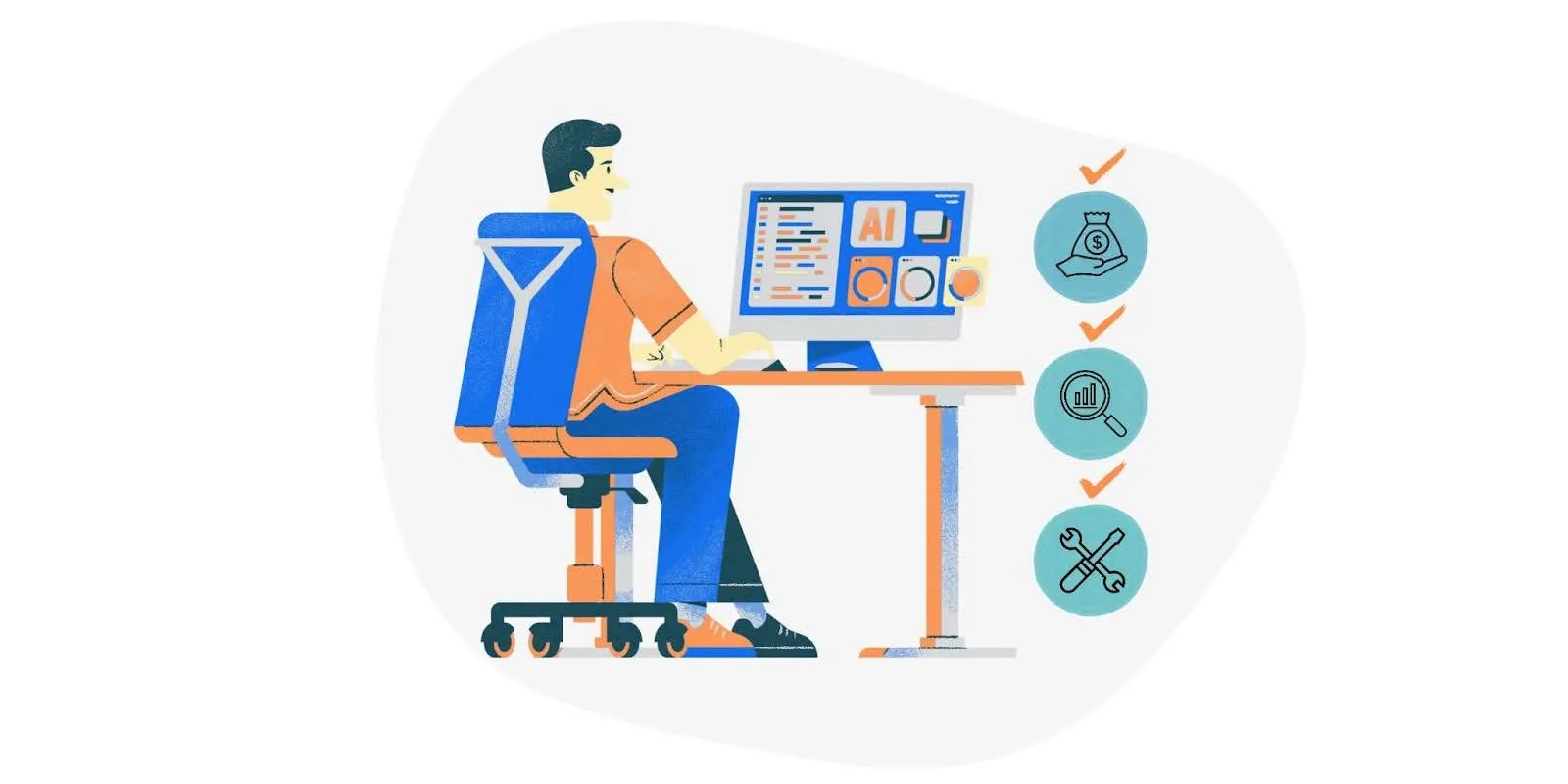
Checklist: Is Your Business Ready for an Internal AI Agent?

Table of Contents
-
What Should I Consider Before Developing An Internal AI Agent?
1.1 Do You Have a Problem That Genuinely Requires AI?
1.2 How to Optimize Data Processing?
1.3 Are You Already Relying on Off-the-Shelf AI Tools?
1.4 Is Your Core Infrastructure Ready for AI?
1.5 Can Your Budget Handle the Commitment?
1.6 Is Your Culture Ready for AI?
Integrating an internal AI agent into your business in 2025 has become a credibility move, and often a survival tactic in industries being shaken up by AI automation. Every boardroom wants to talk about AI, but not every company is actually ready to implement a tool that can automate tasks, optimize decisions, or support employees in daily workflows.
With 78% of businesses worldwide already adopting AI technologies, the rush is real. From retail chains dabbling in recommendation engines to logistics firms squeezing more efficiency out of routing data, AI is being treated as the missing link. But here’s the catch: rolling out an internal AI agent only works if your business has the foundations, the budget, and the appetite to actually use what it delivers. Otherwise, it’s just an expensive exercise.
What Should I Consider Before Developing An Internal AI Agent?
1. Do You Have a Problem That Genuinely Requires AI?
Not every company needs an internal AI agent today. The first checkpoint is whether you’re solving a problem that truly requires automation, prediction, or personalization. If your business is still humming along fine with spreadsheets and simple software, integrating an AI agent won’t suddenly transform your margins.
You’re ready if the lack of AI expertise is actively slowing growth. That usually means you’re dealing with workflows too complex for traditional tools, or your roadmap depends on faster, more intelligent decision-making. If the absence of AI functionality is creating a bottleneck, it’s a sign you should consider investing in an internal agent.
2. How to Optimize Data Processing?
Data overload is another clear indicator. Millions of transactions, endless customer behaviour metrics, or real-time logistics streams quickly overwhelm conventional analytics. If your team is spending more time wrangling spreadsheets than acting on insights, an AI agent can help tame the chaos.
This investment isn’t a novelty; it’s about survival. Without proper AI automation and modeling, valuable insights are left on the table, and competitors may outpace you with sharper, faster decisions.
3. Are You Already Relying on Off-the-Shelf AI Tools?
If your leadership team is signing off on generic AI-powered tools but can’t explain how they fit into your workflows, you’re exposing the business to risk. Budgets get wasted, integrations misfire, and compliance headaches multiply when no one has ownership of the automation running in the background.
An internal AI agent brings clarity. It’s built to fit your stack, your data, and your goals; not just vendor promises. Without that alignment, you’re basically flying blind.
4. Is Your Core Infrastructure Ready for AI?
Rolling out an internal AI agent without clean, usable data can be a disaster. Before you deploy, your infrastructure should support serious AI-driven work.
That means reliable data pipelines, governance frameworks, and enough computing power to process tasks. It also means avoiding “data swamps”, including duplicate, missing, or inconsistent information that kills productivity.
Compliance is also part of infrastructure readiness. Any AI project that touches personal data must account for GDPR, the UK Data Protection Act, and potentially the EU AI Act. Skip this prep, and your AI rollout could end in regulatory fines.
5. Can Your Budget Handle the Commitment?
AI agents aren’t a one-off expense. Beyond licensing or AI development services costs, there’s computing, integration, monitoring, and ongoing optimization to budget for. Treating it like a plug-and-play tool underestimates the commitment.
Budget readiness isn’t just about the initial rollout. You need a multi-year plan of projects where internal agents create measurable value. A single flashy prototype won’t cut it. The smartest founders map out at least two to three years of initiatives that tie AI directly to revenue or customer experience.
6. Is Your Culture Ready for AI?
AI doesn’t just live in the IT department. It reshapes how decisions are made across the business. If your teams fear automation or assume AI will steal jobs, adoption will stall before it starts.
Leaders must frame new AI solutions as augmentation, not replacement. The pitch to employees should be about removing busywork, freeing up time, and expanding creativity. Without that narrative, resistance will grow, and your new agent will be stuck fighting internal battles.
Cultural readiness also means trusting data-driven recommendations. If your leadership still relies solely on gut instinct for major decisions, your AI agent’s insights will be ignored, and morale will sink. Culture and tech must move forward together.
How To Find The Right AI Development Company?
Rolling out an internal AI agent is a big step, and having the right expertise to guide the process can make all the difference. The right partner can help your business assess readiness, set up the infrastructure, and navigate compliance, ensuring your AI agent delivers measurable value.
Working with experienced teams, like those at Magora, one of the leading AI firms in London, can help streamline adoption and avoid common pitfalls, whether it’s deploying AI automation, integrating internal agents into workflows, or supporting specialized projects like chatbot development.
Final Thoughts
Deploying an internal AI agent in 2025 is a major step. It signals ambition, but it also comes with serious responsibility. Businesses that succeed prepare on three fronts: technical, financial, and cultural.
Use this checklist to take stock. If you can tick most boxes, it’s time to move forward with automation. If not, there’s no shame in waiting, renting AI expertise, or focusing on foundational work first. AI is not a race you win by rushing; it’s a long-term play where preparation wins.
Ready to invest in an internal AI agent for your business? Partner with Magora, one of the leading AI firms in London, and let’s build scalable, data-driven solutions for the future.





